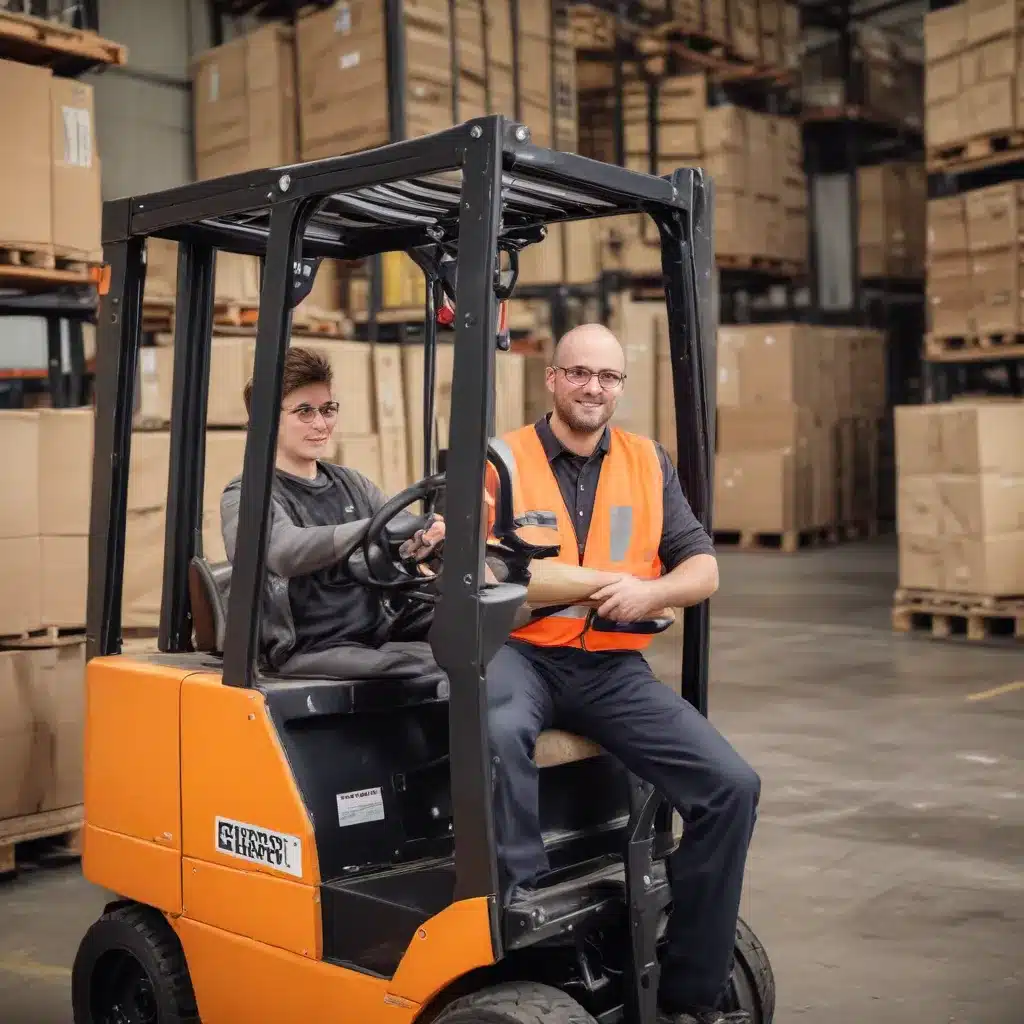
The Importance of Mentorship and Coaching in the Forklift Industry
In the fast-paced, ever-evolving world of forklift operations, having a strong foundation of technical expertise is just the beginning. To truly thrive in this industry, forklift operators must also develop critical leadership and interpersonal skills that enable them to navigate complex challenges, mentor their teams, and drive continuous improvement.
Effective mentorship and coaching programs can be transformative, empowering forklift operators to not only excel at their day-to-day responsibilities, but also positioning them for long-term career growth and advancement. By cultivating a culture of ongoing learning and development, organizations can unlock the full potential of their forklift workforce, positioning them as invaluable assets and industry leaders.
Identifying and Developing Future Forklift Leaders
One of the key benefits of forklift operator mentorship programs is the ability to identify and nurture future leaders within the organization. Rather than relying solely on technical proficiency, these initiatives focus on developing well-rounded individuals who can inspire their teams, drive innovation, and champion safety best practices.
Goodwill’s “My Career Matters” program is an excellent example of how organizations can empower their forklift operators to reach their full potential. This comprehensive training and development program provides team members, from entry-level to management, with the tools and resources they need to develop their skills, advance their careers, and become leaders within the organization.
Through a combination of hands-on training, mentorship opportunities, and targeted leadership development, Goodwill’s program equips forklift operators with the knowledge and confidence to take on greater responsibilities, mentor their peers, and contribute to the overall success of the organization. By investing in their employees’ growth, Goodwill is not only strengthening its forklift operations, but also building a pipeline of future leaders who can drive the industry forward.
Forklift Operator Coaching: Unlocking Peak Performance
In addition to mentorship programs, effective coaching is another essential component in developing high-performing forklift operators. Coaching goes beyond simply teaching technical skills; it focuses on helping individuals identify and overcome personal and professional barriers, develop problem-solving abilities, and cultivate the mindset and behaviors necessary for sustained success.
Waubonsee Community College’s professional development offerings provide a valuable example of how coaching can empower forklift operators to reach new heights. Through specialized training programs and one-on-one coaching sessions, forklift operators learn to effectively communicate, resolve conflicts, and lead their teams with confidence.
By addressing both the technical and interpersonal aspects of forklift operations, these coaching initiatives help operators develop a well-rounded skillset that serves them throughout their careers. Whether it’s navigating complex warehouse logistics, mentoring new team members, or spearheading safety initiatives, the skills gained through coaching empower forklift operators to become indispensable assets to their organizations.
Overcoming Challenges and Embracing Continuous Improvement
The forklift industry is not without its challenges, and the most successful operators are those who are able to adapt and thrive in the face of adversity. Mentorship and coaching programs can play a crucial role in equipping forklift operators with the resilience and problem-solving skills necessary to overcome obstacles and drive continuous improvement.
As highlighted in the article “Being a Non-Technical Engineering Manager in an Industry that Treasures Technical Skills,” the ability to navigate ambiguity, manage change, and effectively communicate are essential skills for leaders in technical fields. These same principles apply to forklift operations, where operators must be adept at troubleshooting, adapting to evolving warehouse needs, and fostering a culture of continuous learning and improvement.
Through mentorship and coaching, forklift operators can develop the agility, problem-solving abilities, and interpersonal skills necessary to excel in the face of industry challenges. By embracing a growth mindset and leveraging the expertise of seasoned professionals, forklift operators can position themselves as indispensable assets, driving innovation and operational excellence within their organizations.
Building a Sustainable Talent Pipeline
As the forklift industry continues to evolve, the need for a skilled, adaptable, and engaged workforce has never been more crucial. By investing in comprehensive mentorship and coaching programs, organizations can attract and retain top talent, build a sustainable talent pipeline, and ensure the long-term success of their forklift operations.
Gerdau’s career opportunities provide a compelling example of how organizations can empower their forklift operators to reach new heights. Through a focus on safety, continuous improvement, and professional development, Gerdau has cultivated a culture that attracts and retains top talent, positioning its forklift operators as strategic assets in the company’s ongoing success.
By fostering a supportive, growth-oriented environment and providing forklift operators with the tools and resources they need to succeed, organizations can unlock the full potential of their workforce, creating a positive feedback loop of increased productivity, safety, and job satisfaction.
Conclusion: Elevating Forklift Operations through Mentorship and Coaching
In the rapidly evolving forklift industry, technical expertise is just the starting point. To truly thrive and drive lasting success, forklift operators must also develop leadership, communication, and problem-solving skills that enable them to navigate complex challenges, mentor their teams, and champion continuous improvement.
Through comprehensive mentorship and coaching programs, organizations can empower their forklift operators to reach new heights, positioning them as industry leaders and invaluable assets to the company. By investing in the growth and development of their workforce, these organizations are not only strengthening their forklift operations, but also building a sustainable talent pipeline that will drive the industry forward for years to come.
As the forklift industry continues to evolve, the importance of mentorship and coaching will only continue to grow. By embracing these essential development initiatives, forklift operators and organizations alike can unlock their full potential, elevating the industry and creating a brighter, more prosperous future for all.

